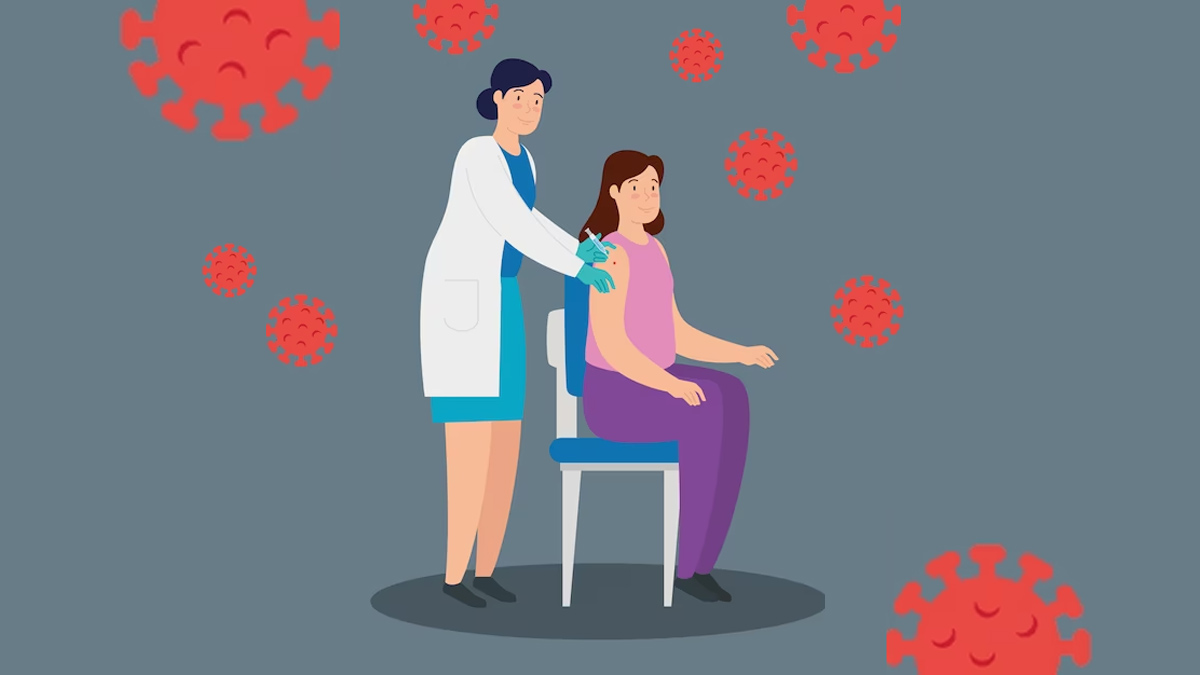
During pregnancy, expecting mothers not only have to shield themselves from diseases but also their babies. Therefore, they are given vaccination that helps their body to develop antibodies against certain viruses and bacteria.
Doctors run several tests during these nine months to ensure that the mother and the baby are fine. In an Instagram reel, Dr Shiba Mittal, a gynaecologist, shared the names of three vaccinations that every pregnant woman must get to protect herself and her baby.

TT stands for Tetanus Toxoid. The injection offers protection against tetanus, a serious illness that can cause seizures and muscles to spasm. It can be strong enough to cause multiple fractures in the spine. According to a report published in the Mayo Clinic, it has been found to be the cause of death in 30%-40% of cases.
While immunisation against tetanus is recommended for infants between 6-8 weeks, Dr Mittal suggested expecting women must take the shot after the first trimester of pregnancy.
View this post on Instagram
Either you get a TT injection or a Tdap injection. Tdap stands for Tetanus-Diphtheria-Pertussis. It is taken between 27-36 weeks of pregnancy. Dr Milttal said, “This injection is very important because it is an injection against Tetanus, diphtheria (infection of nose and throat), and pertussis (whooping cough).”
She explained that antibodies formed with this injection are passed on to the baby. It can be helpful in protecting a newborn from the above illnesses until they get vaccinated against the first dose of DPT (Diphtheria, Tetanus, Pertussis) injection.
According to a report from the Centers For Disease Control (CDC), diphtheria can lead to difficulty in breathing, paralysis, heart failure, or death. Pertussis refers to a violent cough among babies, which can lead to pneumonia, brain damage, convulsions, and death. Among adults and teens, it can also lead to loss of bladder control, weight loss, rib fractures, and passing out.
Don't Miss: Try These 5 Home Remedies For Constipation

The flu vaccine can be given during any trimester of pregnancy, and it offers protection against severe influenza (Influenza-B virus) infections. Different strains of the virus infect the throat, nose, and lungs.
It can spread quickly through the body and cause more problems. According to the CDC, the symptoms include sore throat, fever, chills, muscle aches, cough, vomiting, muscle aches, diarrhoea, runny or stuffy nose, and headache. Some of the serious symptoms include dehydration, pneumonia, and worsening of conditions like asthma and diabetes.
Don't Miss: How Loneliness Can Affect Your Sleep And Mental Health
According to a report published in Immunize India, flu contributes to 5-10% of all acute respiratory infections (ARI). Since the viruses keep evolving, we have advanced vaccines that offer better protection. You must consult your doctor for the best option available.
You should also speak with your doctor regarding getting the COVID-19 vaccination. It has been approved by the Ministry of Health and Family Welfare.
If you liked the story, stay tuned to HerZindagi for such informative stories.
Also watch this video
Herzindagi video
Our aim is to provide accurate, safe and expert verified information through our articles and social media handles. The remedies, advice and tips mentioned here are for general information only. Please consult your expert before trying any kind of health, beauty, life hacks or astrology related tips. For any feedback or complaint, contact us at compliant_gro@jagrannewmedia.com.